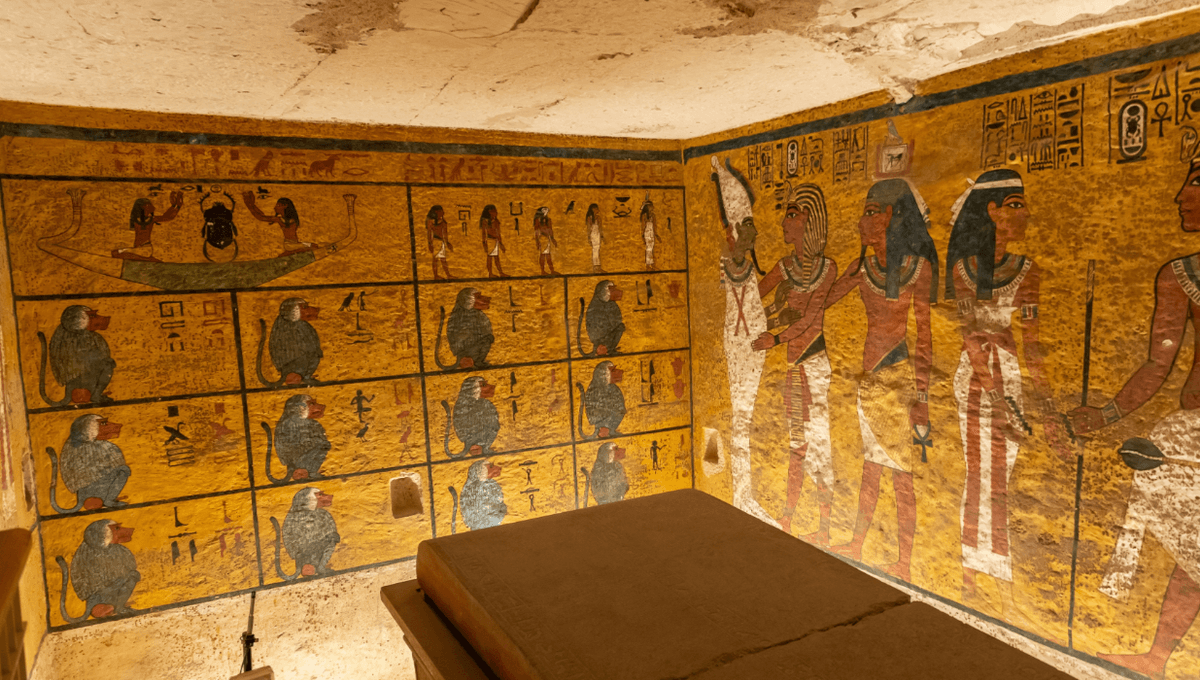
Taking a whiff of an ancient Egyptian tomb probably isn’t very high on your sightseeing bucket list, but you might be pleasantly surprised by some of the smells that can persist here (ignoring the thousands of years of dust and decay).
New research has found that certain aromatic plants used in ancient Egyptian funerary rituals, such as myrtle and immortelle, can still contain detectable amounts of volatile organic compounds nearly 2,000 years after being used. This suggests that they can still kick up a smell after all this time.
Revered for their aromatic scents, myrtle and immortelle have been used in rituals by different cultures around the Mediterranean for thousands of years. They were used extensively in Ancient Egypt, particularly through the Roman and Greek periods, as ornaments on mummies and seemingly played a role in their burial rituals.
“It is possible that the use of aromatic plants such as immortelle and myrtle was specifically due to the importance of breathing to revive the deceased, as their scent may have stimulated this ability. In addition, the fact that immortelle does not wilt must have suggested the idea of survival beyond death, while its golden color, the same color as the flesh of the gods, possibly recalls the divinization of the deceased after their death,” the study authors explain.
In a new study, scientists at the University of Pisa in Italy analyzed several samples of myrtle and immortelle, including some collected in the 19th century and others from the ancient Egyptian city of Faiyum, dated to approximately 1 CE to 400 CE.
Using some fancy scientific techniques – catchily named “evolved gas analysis-mass spectrometry and double-shot analytical pyrolysis-gas chromatography-mass spectrometry” – the team found that samples contained detectable amounts of volatile organic compounds. This includes the ancient archaeological samples from Egypt.
Stinking plants aren’t the only thing in ancient Egyptian tombs that have a surprisingly good shelf-life. When Tutankhamun’s tomb was excavated in 1922, archaeologists came across a jar of honey. They even had a taste of the syrupy substance and said that it still tasted sweet. Thanks to its low water content and acidic pH, honey doesn’t ever spoil, so the 3,000-year-old food probably tasted pretty good (or, at least, a taste wouldn’t kill).
In a more recent discovery, archeologists discovered the tomb of an ancient Egyptian queen earlier this year that was loaded with hundreds of well-preserved wine jars. Traces of 5,000-year-old wine were reportedly still in the vessels, but the remains have most likely been reduced to dust.
In Germany, however, there is a 1,700-year-old bottle that still contains liquid wine. Scientists believe the wine is still drinkable, although judging by the looks of it, it wouldn’t taste too pleasant.
The new study is published in the Journal of Analytical and Applied Pyrolysis.
Source Link: Ignore The Deathly Decay, Egyptian Tombs Perhaps Don't Smell Too Bad